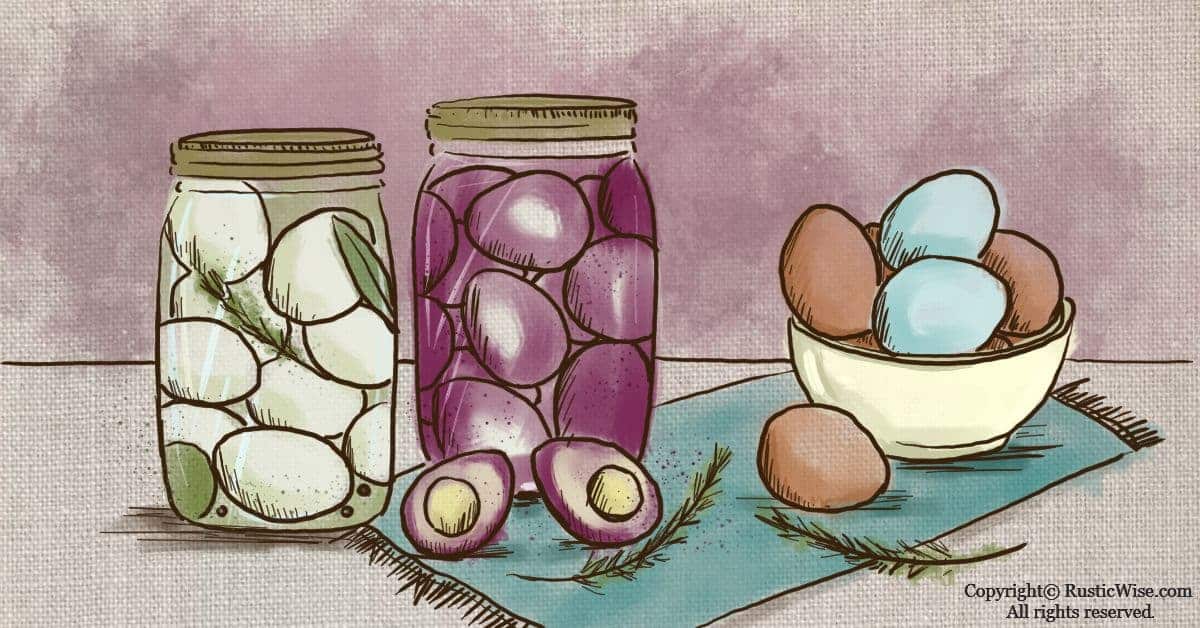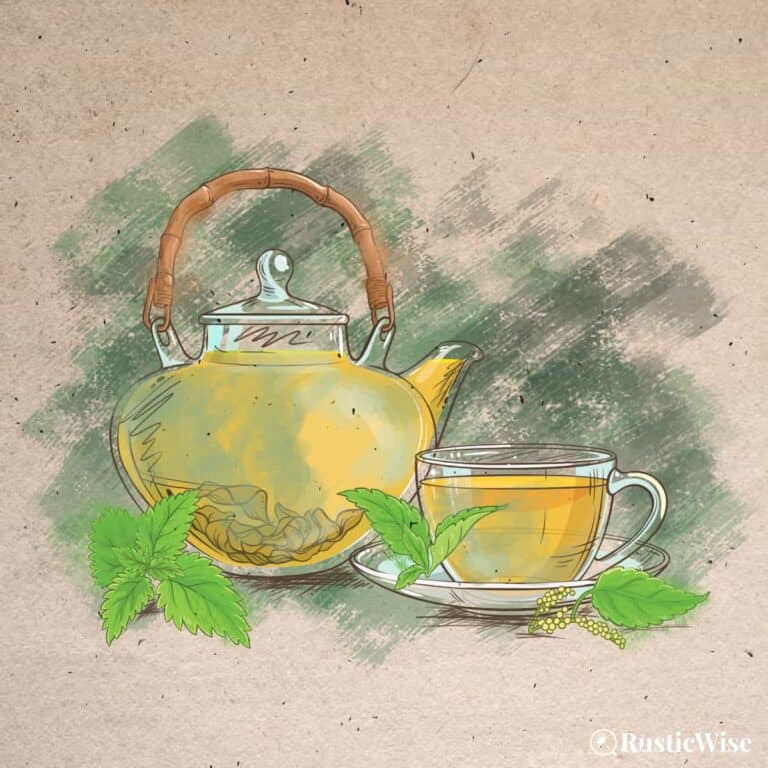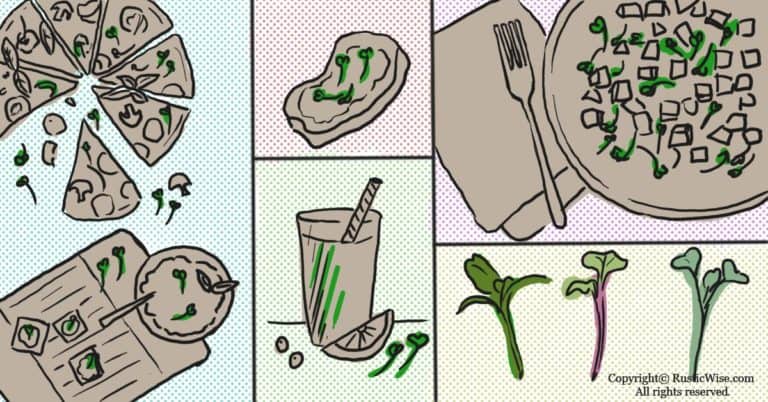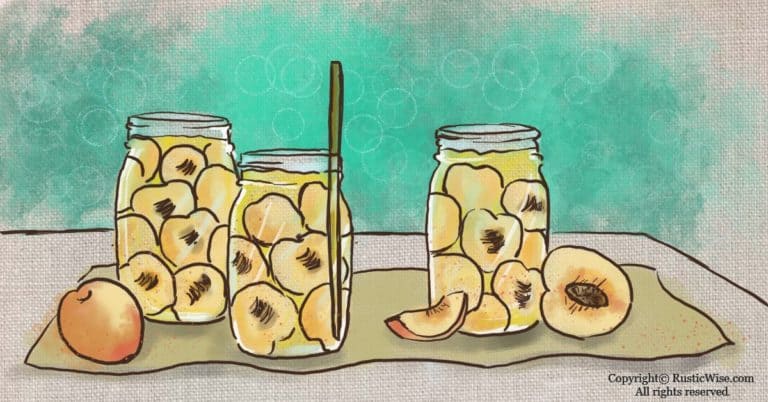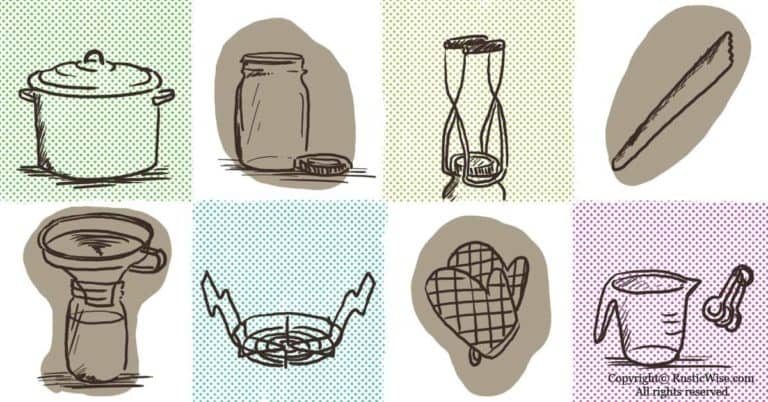How Long Will Pickled Eggs Keep?
Do you have a jar of pickled eggs sitting in your fridge? If it has been there for months, you’re probably wondering, how long will pickled eggs keep? The National Center for Home Food Preservation states that when kept refrigerated, pickled eggs should be consumed within 3 to 4 months for best quality.¹ And yes, you’re supposed to refrigerate them!
Pickled eggs are a classic dish that can be enjoyed year-round. If you’ve never tried them before, they’re worth a shot! While there are many different pickled eggs recipes, most varieties have a mouth-puckering tangy flavor from a pickling solution made of vinegar and spices.
Like other low-acid foods, pickled eggs are prone to botulism when improperly packed or stored. To prevent this dangerous foodborne illness, it’s important to follow a few food safety practices when storing and making pickled eggs.
Do you need to keep pickled eggs in the fridge?
Yes, the National Center for Home Food Preservation (NCHFP) states that pickled eggs must be kept in the fridge.¹ This is because there are no reliable recipes for homemade canned pickled eggs.
Eggs are a low-acid food. When home canning, low-acid foods such as meat, poultry, fish, and most vegetables require processing in a pressure canner to effectively kill harmful pathogens. Unfortunately, most home pressure canners are not able to sufficiently or reliably kill bacteria when it comes to pickled eggs.
And in case you’re wondering, regular, unpickled store-bought eggs need to be stored in the fridge too. Read more about egg refrigeration and how long store-bought eggs last.
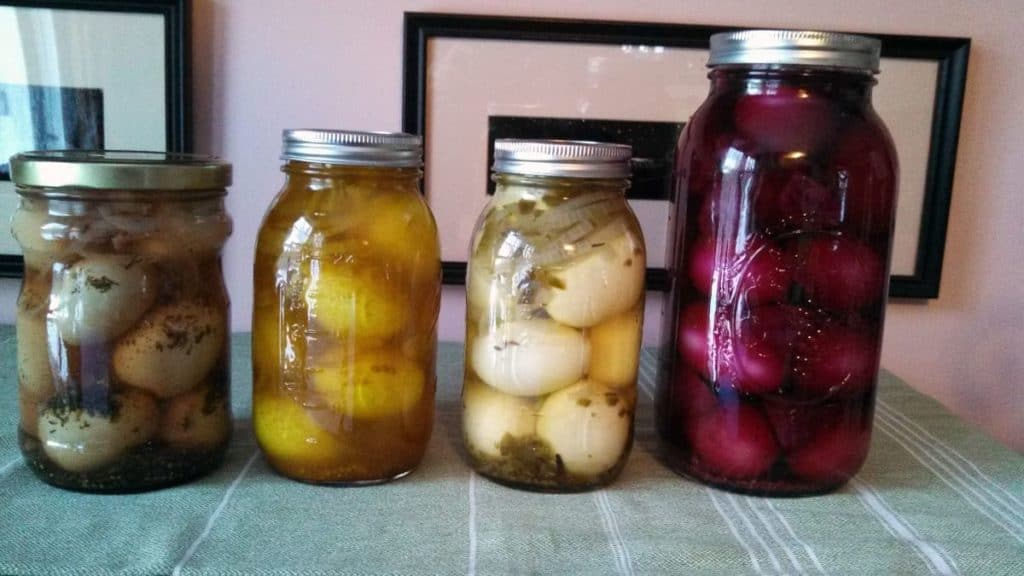
Canning pickled eggs, yes or no?
Simply put, no, it’s not safe to can your pickled eggs at home. This is the advice provided by NCHFP along with pretty much every University Cooperative Extension office.
While you might see some online recipes for canning pickled eggs for long term storage, none of these recipes are recommended by food safety experts.
Can you keep pickled eggs at room temperature?
No, please don’t keep pickled eggs at room temperature. The Centers for Disease Control and Prevention (CDC) reports a man who died of botulism poisoning from consuming homemade pickled eggs stored at room temperature.²
Scouring through different online forums, there are many who claim they’ve kept pickled eggs on their countertops, and their grandparents did the same, and no one has ever gotten sick. Others say that pickled eggs kept at room temperature are a mainstay in British pubs as free grub.
The risk of developing botulism isn’t worth it. I would rather be safe than sorry. And my general distrust of “free” bar food (which includes pretzels, nuts, and now pickled eggs stored at room temperature) makes me want to hurtle in the opposite direction.
Why are pickled eggs prone to botulism?
Botulism toxins are produced from the bacterium called Clostridium botulinum. While botulism is rare, it can be lethal and cause paralysis and respiratory failure.
Pickled eggs provide an ideal environment for botulism to thrive. When food is improperly processed or stored, it allows harmful pathogens to develop. In particular, botulism likes:
- Low pH foods: This includes low-acid foods like eggs, meat, and most vegetables.
- Low-oxygen environment (anaerobic conditions): The bacteria can grow and produce the toxin without any outside interference.
- High moisture: Pickled or canned foods provide plenty of liquid and moisture for botulism spores to reproduce.
Pickled eggs safety tips
Now that we scared you about botulism, there are several ways you can prevent it from occurring by following a few food safety practices.
- Keep it clean: This includes washing your hands (remember to sing Happy Birthday twice), using clean utensils, wiping down countertops, and sterilizing jars. To safely sterilize jars, submerge them in boiling water for at least 10 minutes.
- Avoid room temperature: Only keep pickled eggs at room temperature when you’re just about to serve or eat them. Leaving them at room temperature for more than 2 hours is a general no-no as this is the “danger zone” which provides the perfect temperatures for botulism spores and other nasties to reproduce and grow.
- Leave boiled eggs intact: This is advice from the CDC after discovering that the man who died of botulism had poked holes in his eggs. The practice of poking holes in pickled eggs is actually common practice: it’s meant to allow the flavor of the brine and seasoning to soak into the eggs. However, the CDC says that this can provide another way for bacteria to contaminate pickled eggs.²
- Be patient: Wanna know the secret to great tasting pickled eggs? Let them sit in their seasoning (in the fridge of course!) for around two weeks before eating.³ This allows the spices to soak into the eggs and gives it a more mouth-puckering pickled flavor.
Tip: Avoid using brass or copper cooking utensils when making pickled eggs, or when working with vinegar in general. These metals may cause discoloration in the food (and nobody wants that!). Stick with stainless steel, glass, or ceramic pots and utensils.
How are pickled eggs made?
You’ll find tons of pickled eggs recipes online calling for different ingredients. Most use a pickled brine consisting of vinegar, sugar, salt, and pickling spices. Some recipes use beet juice which gives eggs a pinkish hue.
Here’s the general homemade process for making pickled eggs:
- Sterilize jars in boiling water for at least 10 minutes.
- Boil eggs until cooked. Remove from hot water and place in a cold water bath (this makes it easier to remove the shells). Peel and discard shells.
- Prepare the brine on the stovetop. Bring to a boil, then reduce heat and simmer for 5 minutes.
- Place hard boiled eggs in jars. Pour pickling liquid over eggs. Ensure eggs are completely covered with brine.
- Cover with a lid and store in the fridge immediately.
Don’t forget to label the jar with the date!
Pickled eggs recipe
Here’s a pickled egg recipe from the NCHFP using beet juice. This recipe makes one dozen hard-cooked eggs.¹
Enjoy a beet pickled egg on its own, or spinkle salt and pepper to taste. These are also great additions to avocado toast or egg salad. (Just keep in mind that the bright purplish-red coloring may spread to other foods!)
You’ll need a warm and sterilized 1-quart mason jar and lid.
Yield: 12 eggs
Red Beet Eggs
- 1 cup red beet juice (from canned beets)
- 1½ cups apple cider vinegar
- 1 teaspoon brown sugar
- Several canned whole tiny red beets (or several slices of beets)
Other tips for making the best pickled eggs
- Use fresh eggs.
- Stick with small to medium size eggs (large eggs won’t absorb the flavors as well as their smaller counterparts).
- Let cooked, peeled eggs sit in pickle juice for at least 1 to 2 weeks (if you can wait that long!) before enjoying them. This allows the flavors to fully steep into the eggs.
- After hard boiling eggs, place them in a bowl of ice cold water to stop the cooking process. Roll the eggs onto a clean, flat surface to crack the shells. Begin to peel the shell from the larger end of the egg first.
- If eggs shells are not coming off easily, peel them under cool, running water.
How can you tell when pickled eggs are bad?
With most foods, you can generally do a sniff test, but this won’t work well with pickled eggs as all you’ll smell is pickling vinegar.
Many old pickled eggs develop a rubbery texture, or an off-taste. The best way to prevent yourself from accidentally eating an old rubbery egg is to label the jar with the date (in the case of homemade pickled eggs).
If you have a batch of old pickled eggs, it’s best to toss them for safety’s sake.
👉Read up more about the shelf life of eggs here.
Can you freeze pickled eggs?
The U.S. Department of Agriculture (USDA) does not recommend freezing eggs as this alters the texture.⁴ In other words, your lovely pickled eggs once frozen, can turn simply gross.
How to store store-bought pickled eggs
The USDA says that commercially-processed eggs may be kept in an airtight container at room temperature for several months (if unopened). Once opened, they need to be refrigerated and used within 7 days.⁴
The takeaway: how long will pickled eggs keep?
While pickled eggs are a favorite of many, resist the temptation to bite into an old egg. Store homemade pickled eggs in the fridge for up to 4 months or you could risk botulism growth.
If you love pickled eggs but don’t have time to make them from scratch, there are commercially-processed products that will keep on your shelf for several months if unopened. Once opened, they need refrigeration and should be eaten within 7 days.
Related questions
Can you pickle eggs in a plastic jar?
No, it’s best to stick with a glass mason jar or a canning jar. Plastics have a tendency to absorb odors. Depending on the type of plastic, it may not withstand heat well when pouring hot brine over the eggs.
How can you tell if hard-boiled eggs are cooked after boiling?
There’s a trick to tell if an egg is hard boiled or raw: spin it. A hard boiled egg spins in a circle evenly while a raw egg wobbles.⁵
What is pickling spice made of?
Most pickling spice consists of allspice, bay leaves, cardamom, cinnamon, cloves, coriander, ginger, mustard seed, and black peppercorns. It’s important to use whole spices to avoid clouding the pickling brine.
While you can buy premade pickling spice, it’s easy enough to make your own. Making a DIY batch lets you customize the spices to your mix. Other good pickling herbs and spices to try include dill, mace, and nutmeg.
Should I use white vinegar or apple cider vinegar for pickling?
Both white distilled vinegar or apple cider vinegar (ACV) are suitable for pickling recipes. It’s best to use the one recommended in your recipe as they have different flavor profiles. White vinegar has a sharper, more pronounced flavor, while ACV is milder with fruity notes.
No matter what kind of vinegar you decide to use, make sure it contains at least 5 percent acetic acid for safe food preservation.
How long can pickled eggs be kept at room temperature?
When serving your pickled eggs, you can keep them at room temperature for up to 2 hours.
👉 If you like this post, see our Ultimate Guide on How To Can Food. 🍎
Would you like more timeless tips via email?
Fun tips to help you live an independent, self-sustaining lifestyle. Opt-out at any time.


References
- National Center for Home Food Preservation (NCHFP), Pickled Eggs, https://nchfp.uga.edu/how/can_06/pickled_eggs.html. Accessed October 2023.
- Centers for Disease Control and Prevention (CDC), Foodborne Botulism From Eating Home-Pickled Eggs, https://www.cdc.gov/mmwr/preview/mmwrhtml/mm4934a2.htm. Accessed October 2023.
- Treiber, Lisa (11 April 2014). “Extra eggs? Pickle them!” Michigan State University, Accessed May 2021.
- U.S. Department of Agriculture (USDA), Shell Eggs from Farm to Table, https://www.fsis.usda.gov/food-safety/safe-food-handling-and-preparation/eggs/shell-eggs-farm-table#37. Accessed October 2023.
- Egg Farmers of Canada, How to Make the Perfect Hard Boiled Egg, https://www.eggs.ca/eggs101/view/6/how-to-make-the-perfect-hard-boiled-egg. Accessed October 2023.

Author: Theresa Tesolin
Theresa is co-founder of RusticWise. She helps people unleash their inner DIY spirit by encouraging them to get dirty and make or grow something from scratch.

